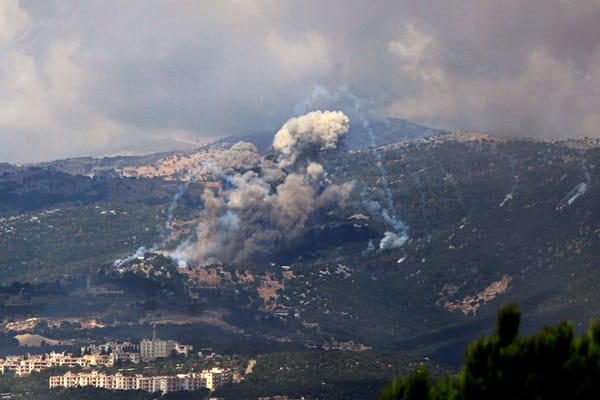Oil prices are set to post sharp losses of more than 1.5% at the start of this week’s trading for both major benchmarks, Brent and West Texas Intermediate.
Oil’s losses come as markets are left disappointed with China’s lack of detail on its upcoming support plans. Added to that is a sharper-than-expected slowdown in prices in China, indicating continued weak demand in September.
The much-anticipated press conference held on Saturday by Chinese Finance Minister Lan Fo did not live up to expectations. Questions about the details and amount of the stimulus packages that are expected to help revive the economy were not answered according to Wall Street Journal, although the minister said they would be significant.
However, The Journal, citing economists, reported that the finance minister has already provided sufficient assurances about the effectiveness of the support to boost economic growth and that it may exceed the target of 5% this year.
Read more related news:
Iraq warns Israel against using their airspace amid fears of an attack on Iran’s oil and military infrastrucutre
Hezbollah ‘swarm drones’ evade Israels defences and strike a military base killing IDF soldiers
To make matters worse, yesterday’s release of the September consumer and producer price indices fell short of expectations. The annual growth in consumer price inflation slowed to the lowest rate since last June at 0.4%, and producer prices continued their contraction that has extended since October 2022, this time at the fastest rate since last March at 2.8%.
The National Bureau of Statistics in China said that the monthly contraction in producer prices, which amounted to 0.6%, was due to the volatility of global commodity prices and insufficient domestic demand.
While the escalating geopolitical tensions in the Middle East may preserve the ability of crude to cut its losses, as caution prevails regarding the expected Israeli attack on Iran in response to the unprecedented missile attack. This attack may include Iranian oil facilities, which may require a counter-attack by the Islamic Republic or its allies on other crude facilities in the region, which may cause prices to rise dramatically. While a final decision has not yet been made regarding the scope and timing of the attack, according to Axios.
I also believe that sending a battery of the THAAD air defense system from the United States to Israel may give further encouragement to Israeli Prime Minister Benjamin Netanyahu to make more escalatory decisions by exploiting the increase in American support. The deployment of this ballistic missile defense system was not conditional on Israel refraining from provocative attacks, according to the Wall Street Journal, citing an American official.
But in an apparent attempt to urge Israel not to take escalatory steps in the region and fuel the rise in oil prices, the US administration said last Friday that it would tighten sanctions on Iran. However, I believe that the White House’s seriousness in pressuring Iran, especially in the energy sector, will remain questionable.
Sanctions have already been imposed, and the Biden administration has faced ongoing criticism for not doing enough to enforce them, seemingly due to the White House’s desire to avoid escalating tensions with Iran. Furthermore, limiting Iranian oil exports could drive up prices—an outcome the Democrats may wish to avoid as the presidential election campaign kicks off next month.








